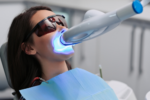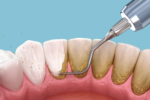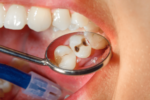When it comes to oral health, dental fillings play a crucial role in restoring teeth affected by decay or damage.
Composite fillings are a popular choice among the various dental fillings due to their durability, aesthetics, and versatility. This article will explore composite fillings, their benefits, and how they compare to other options.
Non-Invasive Options
When dealing with dental issues, non-invasive approaches are often explored before considering more intensive procedures. These TMJ disorder treatment options aim to alleviate symptoms and improve oral health without surgery or invasive techniques.
1. Lifestyle Modifications
Simple lifestyle changes can have a significant impact on dental health. Maintaining good oral hygiene, including regular brushing and flossing, can help prevent decay and reduce the need for fillings.
2. Physical Therapy
For individuals experiencing temporomandibular joint (TMJ) pain or dysfunction, physical therapy exercises can help strengthen jaw muscles and improve jaw function. These exercises focus on relaxation techniques, stretching, and strengthening exercises tailored to the individual’s needs.
3. Night Guards and Splints
Night guards and splints are commonly used to alleviate symptoms associated with teeth grinding or clenching, a condition known as bruxism. These custom-made oral appliances help protect the teeth from excessive wear and reduce muscle tension in the jaw.
Medications for TMJ
In cases where TMJ pain persists despite lifestyle modifications and non-invasive treatments, medications may be prescribed to alleviate symptoms and improve jaw function.
1. Pain Relievers
Over-the-counter pain relievers such as ibuprofen or acetaminophen can help reduce inflammation and relieve discomfort associated with TMJ pain.
2. Muscle Relaxants
Muscle relaxants may be prescribed to help relax the muscles around the jaw, reducing tension and alleviating symptoms of TMJ dysfunction.
Dental Procedures
When non-invasive options fail to act as a TMJ disorder cure, various dental procedures may be recommended to restore oral health and function.
1. Bite Adjustments
Bite adjustments involve reshaping the chewing surfaces of the teeth to improve the way they come together when biting or chewing. It can help alleviate pressure on certain teeth and prevent further damage.
2. Orthodontic Treatment
Orthodontic treatment, such as braces or clear aligners, may be recommended to correct misaligned teeth or bite issues. By properly aligning the teeth, TMJ treatment in Edmonton can improve chewing function and oral health.
Surgical Options for Severe Cases
In severe cases of TMJ dysfunction or dental issues, surgical intervention may be necessary to address the underlying problems and restore oral health.
1. Arthrocentesis
Arthrocentesis is a minimally invasive procedure used for TMJ disorder treatment by flushing out debris and inflammatory substances from the joint space. It can help reduce pain and improve jaw function.
2. TMJ Surgery
In cases where conservative treatments are ineffective, TMJ disorder surgery may be recommended to repair or replace damaged joint tissues and improve jaw function.
Integrative Approaches
In addition to conventional treatments, integrative approaches such as acupuncture and holistic therapies may offer additional benefits for individuals with dental issues.
1. Acupuncture and Acupressure
Acupuncture involves the insertion of thin needles into specific points on the body to promote healing and alleviate pain. Acupressure, conversely, consists of applying pressure to these same points using fingers or massage tools.
2. Holistic Therapies
Holistic therapies focus on treating the individual, addressing physical, emotional, and spiritual aspects of health. Practices such as meditation, yoga, and dietary changes complement conventional dental treatments and promote overall well-being.
Summarizing Words
Composite fillings offer a versatile and durable solution for restoring teeth affected by decay or damage. By understanding the various treatment options available, individuals can make informed decisions about their dental care and consult a dentist near you to maintain optimal oral health.
Whether through non-invasive approaches, dental procedures, or integrative therapies, the goal remains: to preserve the health and functionality of the teeth and jaws for years to come.








